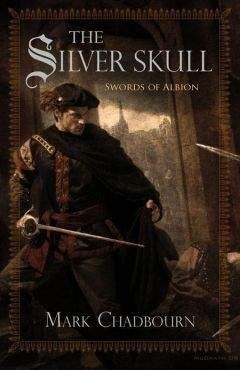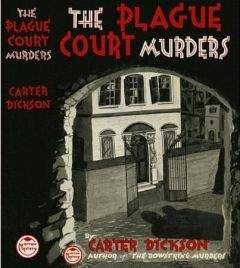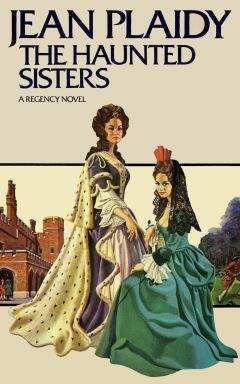Jean Plaidy - For a Queens Love: The Stories of the Royal Wives of Philip II

Скачивание начинается... Если скачивание не началось автоматически, пожалуйста нажмите на эту ссылку.
Жалоба
Напишите нам, и мы в срочном порядке примем меры.
Описание книги "For a Queens Love: The Stories of the Royal Wives of Philip II"
Описание и краткое содержание "For a Queens Love: The Stories of the Royal Wives of Philip II" читать бесплатно онлайн.
He was happier now; he was guiding his thoughts into the right channels.
These victims who had once been men and women—very like the men and women in the square, very like the people on the platform—all wore the symbol of their shame: the hideous, loose-fitting sanbenito and caps made of pasteboard with grotesque devils painted upon them.
There were three types of this coarse woollen gown, and the spectators could see at a glance what fate was intended for the wearers. Among the mournful procession were some whose garments were simply marked with a red cross: they were guilty of the venial sins, and penance, imprisonment, and confiscation of goods was to be their punishment; after their sentences were pronounced they would be taken back to the gloomy prison of the Inquisition to expiate their sins. There were others whose garments displayed busts of human beings in the act of being consumed by long red flames which were pointing downward; this indicated that although their bodies would be burned they would not feel the flames since, as they had recanted, they should first be accorded the mercy of strangulation. The third type of garment displayed busts and heads in the midst of flames which pointed upward, fanned by mocking devils; these were the unrepentant heretics who were condemned to be burned alive.
“Repent and be reconciled!” chanted the monks who walked on either side of the yellow-clad figures. “Repent and be reconciled!”
Following the prisoners came the jailors and more monks, the magistrates and the important officials of the Inquisition on mules, the trappings of which were so gorgeous that for a few moments the eyes of the crowd were fixed upon them instead of on the miserable victims.
Philip’s pale skin turned to coral as the sarcenet was held high. It was red—the color of blood—and embroidered with the heraldic arms of the Inquisition, the Papal arms and those of Ferdinand and Isabella.
The sermon of faith, preached that day by the Bishop of Zamora, was longer than usual; and after the sermon came that great moment when Philip endeared himself to his people as few other sovereigns ever had.
There was a great silence in the crowd as Valdés rose. He raised his hand, and all in the square—man, woman, and child—knelt and lifted their hands toward the skies as they chanted the Oath of Allegiance to the Holy Office. They would be faithful to the Holy Catholic Church and its Inquisition in life and in death; they would give their right eyes, their right hands in its service, and if necessary their lives.
And as they began to chant the Oath—which was not demanded of the King—Philip sprang suddenly to his feet; his Toledo blade flashed from its scabbard; and holding it before him, the King himself repeated with the people the Oath of Allegiance to the Inquisition.
When the chanting ceased and the people raised their eyes and saw their King standing there, his sword gleaming like silver, his pale face alight with fervor, there was a brief, awestruck silence before someone in the crowd shouted: “Long live the King! Long live Philip to reign over us!”
The tumult broke then; it lasted several minutes.
Ruy looked at Philip, standing beside him, the jeweled sword in his hands. He recognized the fanatic, and thought with love and pity of a small boy shivering and naked in the Cloister of St. Anne. Other pictures flashed in and out of Ruy’s mind. It was inevitable, he thought. It had to be. Everything which has happened to him has led to this moment.
Carlos was watching his father, and hatred had complete possession of him. If he but had the strength to take that gleaming sword and plunge it into the heart of the man who had become the husband of Isabella!
“My Isabella!” muttered Carlos piteously. “Mine!”
His hatred was so strong that it set a haze before his eyes; he could not see the square; the black-clad monks and the figures in their yellow garments of shame and despair were blurred before his eyes. Ordinarily the scene would have delighted him. What could be more exciting than to watch so much suffering and to do so under a cloak of piety? God himself, according to the King and the Cardinal-Archbishop, was looking down upon them, flashing His scornful hatred at the miserable victims, applauding the spectators and officials and all those who had taken the Oath.
But there was only one man whose suffering could bring Carlos complete satisfaction. Those broken men and women meant no more to him than the rabbits he might roast alive for a little fun.
Into the Quemadero—the place of fire—that space in the center of the square where the stakes had been set up, came the victims, and among them were two men, recently well-known at court. Don Carlos de Seso, a noble Florentine, had been a great friend of the Emperor; he had settled in Valladolid and there had become interested in Lutheran doctrines. He believed that it was his duty, as he had discovered the truth, to teach it to others. He had been a rich man, and such as he were the favorite prey of the Inquisition. With him in the square was Domingo de Roxas, who had himself been a Dominican monk.
With startling suddenness, de Roxas, as he stood there, his body broken, his arms hanging impotent at his sides, raised his voice and began to preach to the multitude. It was some minutes before he could be stopped, and then only by the painful wooden gag which was screwed into his mouth.
But even more startling was that moment when de Seso, fixing his eyes on the central figure in the gallery and raising his voice so that all could hear, cried: “Philip! I speak to Philip the King!”
There was about this man a dignity which even his torture and the hideous yellow robe and pasteboard cap could not take from him.
Philip, almost involuntarily, rose to his feet, and thus they faced each other: the King of Spain, his black velvet doublet a-glitter with diamonds, and the wretched man de Seso, his face, through long incarceration in the airless dungeons of the Inquisition, as yellow as his sanbenito.
“Is it thus then, Philip,” said de Seso, “that you allow your innocent subjects to be persecuted? Does it not fill you with shame to see our shame?”
Philip answered in ringing tones, for he had given his allegiance to the Inquisition, and in his eyes it was the work of God which he and his Inquisitors were doing on Earth:
“Shame? For you is the shame; for us is the glory. If you were my own son, I would fetch the wood to burn you. If my son had denied the true Faith as you have done, he should stand there with you.”
The crowd cheered madly: “God bless great Philip! Long live Philip our King!”
It was some time before the ceremony could go on. This was a day which all those present would remember while they lived. They had seen great Philip take the Oath of Allegiance to the Inquisition, which no other sovereign had done. It was significant. Philip had proclaimed himself: Catholic first, King second. Those present had heard him, with his son beside him, declare that that same son should suffer in the Quemadero as any other, should he prove false to the Faith. What man could have greater love for the Faith than he who was ready to lay down the life of his son for it?
The names of the prisoners were being read aloud with the lists of their crimes; they were sentenced; some were led away to prison. Those who had recanted were strangled before they were bound to their stakes. And now the great moment had come. The fires were lighted and the screams of the living filled the air.
But to have seen the King with his shining sword was more memorable than even the sight of flames that swirled about broken bodies; to have heard him speak the Oath, more wonderful than listening to the screams of heretics and the triumphant shouts of the servants of God.
But Carlos could not take his eyes from his father’s face; and Ruy, watching, could only think: The pity of it! The pity of it all!
A bitter wind was blowing as Elisabeth rode south. The journey was long, and she was thankful for that. With her rode her mother and the two Bourbon Princes—the Cardinal of Bourbon, who had officiated at the proxy marriage, and Antoine, the King of Navarre and Duke of Vendôme, who had married that Jeanne of Navarre whom Philip himself had once thought to marry.
No French lady could travel without an abundant supply of garments and, having been brought up in the French court, Elisabeth was very conscious of fashion. Mules, laden with her extravagant trousseau, traveled with the party, for her dresses must be of the French fashion, acknowledged to be the best in the world.
She wished she could recapture that excitement about her dresses which she had felt when she discussed them with Mary Stuart and even little Margot—who, though so young, was quite conscious of fashion—in the familiar apartments of the Louvre or at Blois.
At intervals along the road the peasants had come out to wave a sad farewell to the little Princess, to marvel at her beauty, and to wish her good luck in her married life.
At the town of Chatelleraut, Catherine de Medici gave her daughter a last embrace and uttered the final words of advice and warning. Antoine, with some French nobles and the Spaniards who had met the party, continued to accompany Elisabeth.
It was a journey of a hundred accidents. The weather was bad and they must at times travel through sleet and snow; some of the baggage was mislaid and the French ladies were in a panic, thinking they might not have dresses fine enough in which to face the Spaniards. The French were closely guarding French honor and carefully watching for slights; and the Spaniards were even more jealous of their dignity.
When it was time for Elisabeth to be formally handed over and to say good-bye to Antoine, whom she loved, she felt herself unable to bear the parting.
When Antoine made his speech, in which he said that he had brought the Princess from the house of the greatest King in the world to be delivered to the most illustrious sovereign on Earth, she broke down and wept; whereupon the emotional Antoine so far forgot his dignity as to break off his ceremonial speech, take her in his arms, and try to comfort her.
All the noble Spaniards—the greatest in the land assembled to represent their King in this important ceremony—were shocked by such conduct. Their glances implied that the Queen would have to learn to behave differently now that she was in Spain.
The Duke of Infantado, head of the great Mendoza family, whose duty it had been to receive her at this stage on behalf of the King, reproved her as he led her away.
“I beg your Highness to remember,” he said, “that you are now the Queen of Spain, and the Queen of Spain does not so condescend to the Duke of Vendôme—even though he may call himself the King of Navarre.”
Elisabeth’s grief subdued her fear. She said sharply: “The Duke of Infantado is greatly daring to speak thus to the Queen of Spain, who will say good-bye to those she loves in the manner of her own people, who do not seek to hide their genuine feelings if they wish to show them.”
The Duke was taken aback, but she was so beautiful, so young, so appealing that she blunted the edge of his Spanish dignity; moreover, he realized that she was not the frivolous girl he had imagined her to be. He could only bow his head and murmur: “I crave your Highness’s pardon.”
All along the road the Spaniards came out to see their new Queen. Her beauty enchanted them. She was typically French in poise and gesture, yet her features bore traces of her Italian ancestry.
She was calmer now that she had said good-bye to her relations. It was too late to hope for a miracle, and since the death of her father she had done with hoping for miracles. Her clothes were not only rich, they were becoming; and the Spaniards had never seen anything like them. She bowed and smiled at the people with French warmth which was so different from Spanish frigidity. She charmed these people as she rode among them. “Surely she is the most beautiful Queen in the world,” they said.
She had long since learned to read the Castilian language, and now she rapidly taught herself to speak it, and if her accent was that of a Frenchwoman, it merely added to her fascinating qualities.
Even the old members of the Spanish nobility were won over by her manners. Even grim Alba himself was attracted by her.
One grows up, thought Elisabeth. One cannot cry when one has no tears left. This is the fate which befalls all princesses.
But she knew that the greatest trial had yet to come. Each day brought her nearer to it, and every little fracas between French and Spaniards prepared her for it. There was still the meeting with Philip—and after that the life with him—to be faced.
Philip was waiting for her at Guadalajara. Juana and Carlos were with him.
Carlos was in a state of extreme tension, though no one but Ruy and Juana seemed to be aware of this. Carlos would have heard the reports regarding the bride; she seemed to have enchanted all those who had come into contact with her, and, although she was not yet fifteen, she had appeared to make even the grim Alba behave like a young man in love.
“Guard my little one,” muttered Juana. “I pray all the saints to guard him.”
Ruy was thinking: Is Philip blind? Does he not realize the effect of this on one so unbalanced as Carlos?
He must be prepared to go to the defense of Philip, for anything might happen. In such a moment Carlos’s mind might topple over into complete insanity. Ruy must be at hand to guard the King.
Philip seemed almost indifferent. He was worried about the Netherlands. The Prince of Orange was hatching evil plots; he knew it. His cousin Maximilian and his sister Maria were growing closer to the German princes; they must be watched. There was so much to occupy his mind, and he only had time to think that this Elisabeth of Valois would suit him because she was young and would bear him children. Marriage was a duty to be endured for the sake of his country.
He was facing a new phase of his career, and he was determined to be ready to meet it. He had said good-bye to Catherine Lenez; Isabel Osorio had gone into a convent, for she knew that, now he was the King, their life together was ended. All Isabel’s children would be provided for by Philip, and later would have good posts in his household or in his armies. Philip could be trusted to do his duty.
He had already sent for his half-brother Juan, in order that he might fulfill the promise he had made to their father, and Juan was being brought up and educated with Carlos.
There was another boy who shared their lessons. This was Philip’s cousin, Alexander Farnese, whom Philip had brought home with him from the Netherlands.
Alexander was the son of Margaret of Parma, who was herself one of the illegitimate daughters of the Emperor Charles. Charles had always made his children’s welfare a concern of his, and he had married Margaret to Alessandro, the illegitimate son of Pope Clement. Alessandro, who had been known as the Nero of Florence, had, fortunately for Florence and Margaret, died a violent death a year after the marriage. After Margaret had been a widow for some years Charles found another bridegroom for her; but in her second marriage Margaret was hardly more fortunate than in her first, for now she was a woman and her new husband, Ottavio Farnese, was only twelve years old. The union was naturally not a very happy one, although it brought Margaret her son Alexander. Charles, aware of her capabilities and that character which was more masculine than feminine, bestowed on her the Governorship of the Netherlands, and this Philip had allowed her to retain.
Подписывайтесь на наши страницы в социальных сетях.
Будьте в курсе последних книжных новинок, комментируйте, обсуждайте. Мы ждём Вас!
Похожие книги на "For a Queens Love: The Stories of the Royal Wives of Philip II"
Книги похожие на "For a Queens Love: The Stories of the Royal Wives of Philip II" читать онлайн или скачать бесплатно полные версии.
Мы рекомендуем Вам зарегистрироваться либо войти на сайт под своим именем.
Отзывы о "Jean Plaidy - For a Queens Love: The Stories of the Royal Wives of Philip II"
Отзывы читателей о книге "For a Queens Love: The Stories of the Royal Wives of Philip II", комментарии и мнения людей о произведении.

















